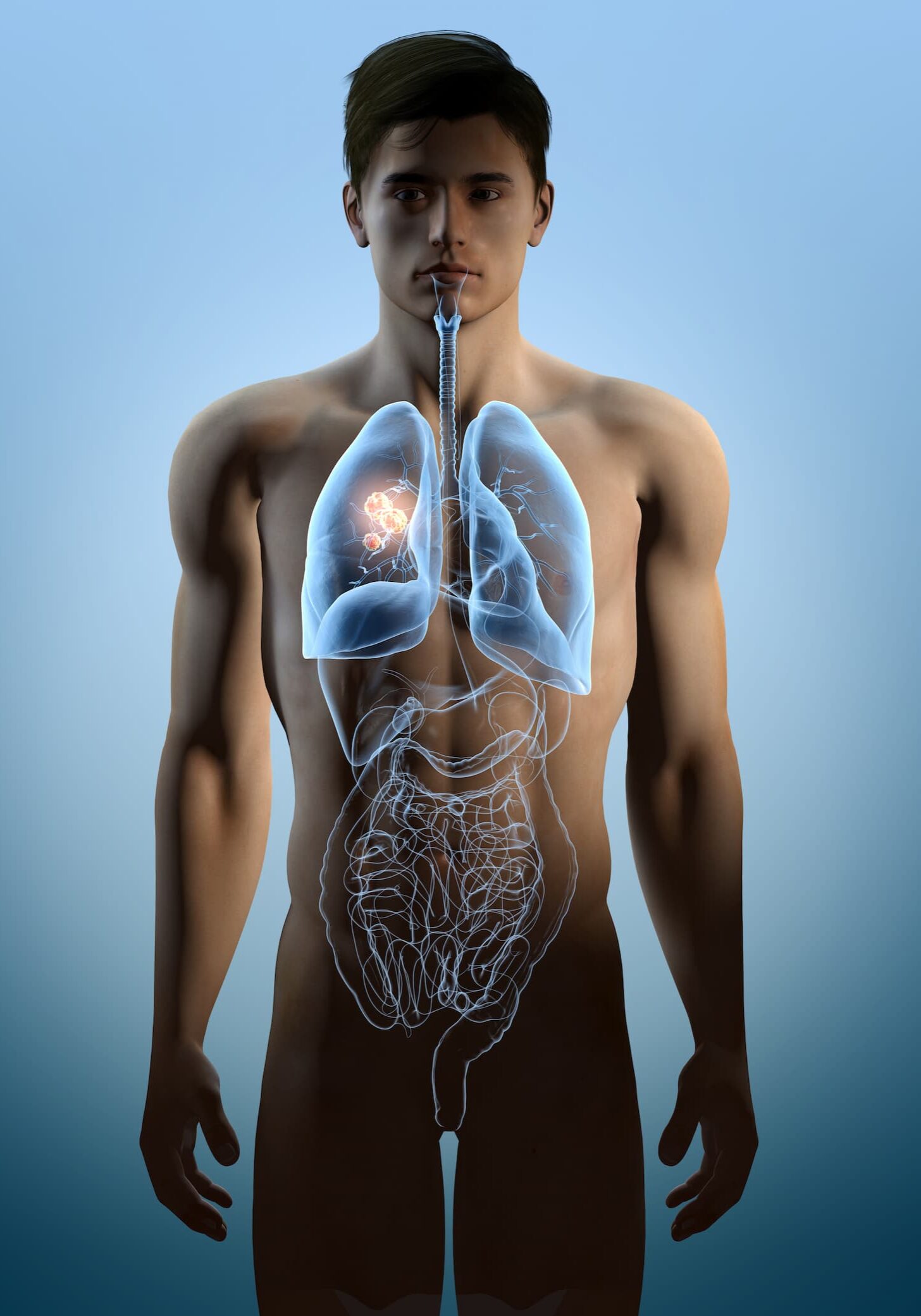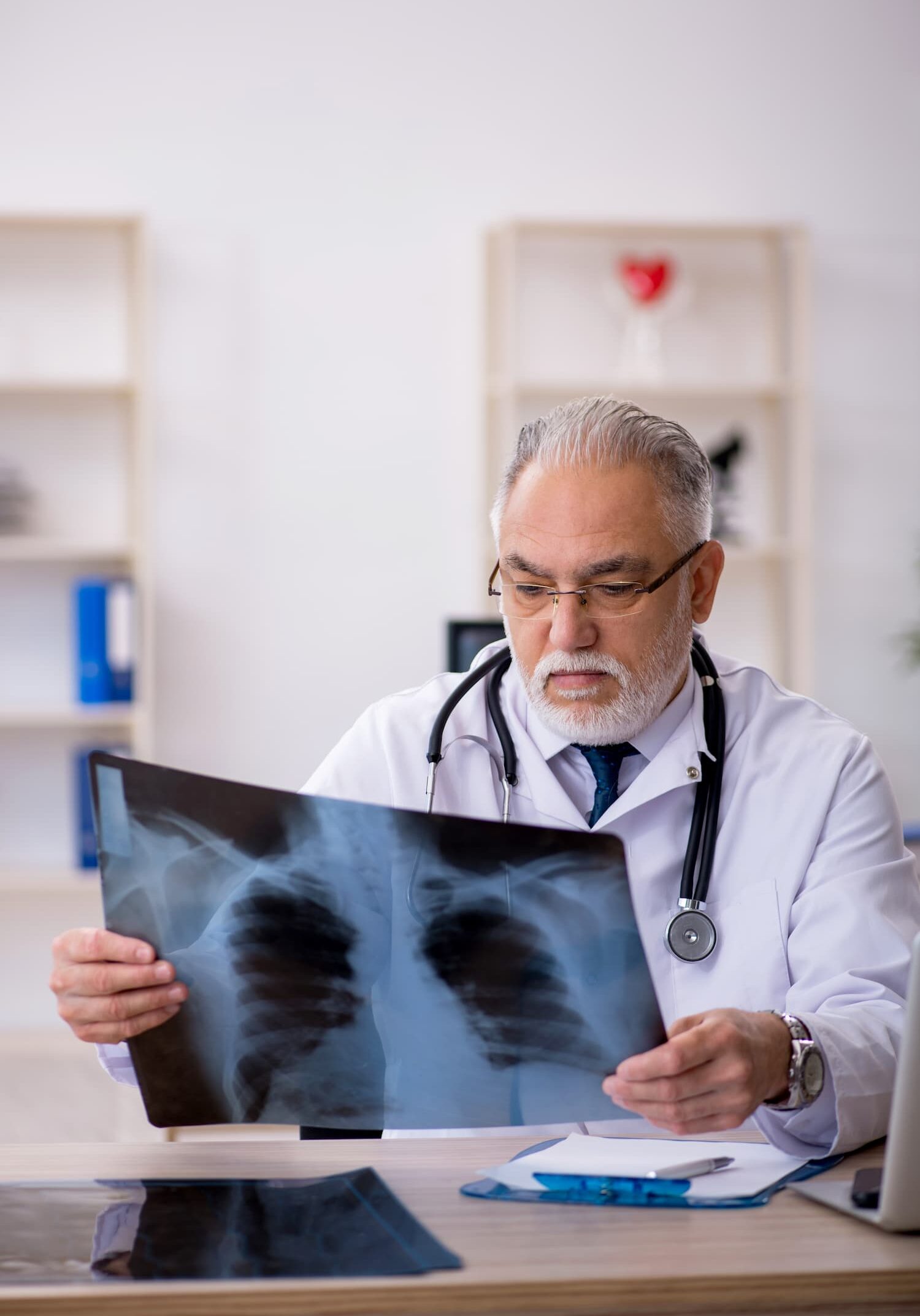The number one cause of lung cancer is smoking tobacco cigarettes. More than 70% of diagnosed patients have a history of smoking. Other forms of tobacco consumption, such as snuff, cigars, pipes or chewing tobacco, can also cause oral, oesophageal and lung cancer. When cannabis is smoked with or without tobacco, this can also be a key cause due to the length of time the smoke is held in the lungs.
Passive smoking with frequent exposure can also increase your risk of lung cancer. Exposure to radon, pollution and workplace hazards such as asbestos, coal fumes, silica and arsenic can all cause various forms of cancer, including lung cancer.

